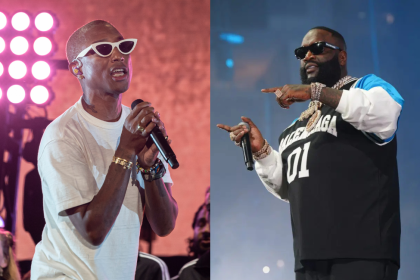 Benjamin Mays has said there are three sins that an African American man can be found guilty of: (1) intelligence; (2) looking directly in the eyes of one’s oppressor, and (3) wearing his dignity outwardly while walking with comportment in the face of those who would demean or dismiss him as less than an equal. If those qualities are indicative of stature and self-confidence, then actor Lance Gross is guilty. He speaks eloquently and assertively about family, friends and love. He elegantly expresses his stance on community issues and his commitment to self-improvement though education and stellar living. Some might ask,”Where is his gangster lean?” Why doesn’t he surround himself with bodyguards in a pompous show of self-indulgence and inflated self-importance?
Benjamin Mays has said there are three sins that an African American man can be found guilty of: (1) intelligence; (2) looking directly in the eyes of one’s oppressor, and (3) wearing his dignity outwardly while walking with comportment in the face of those who would demean or dismiss him as less than an equal. If those qualities are indicative of stature and self-confidence, then actor Lance Gross is guilty. He speaks eloquently and assertively about family, friends and love. He elegantly expresses his stance on community issues and his commitment to self-improvement though education and stellar living. Some might ask,”Where is his gangster lean?” Why doesn’t he surround himself with bodyguards in a pompous show of self-indulgence and inflated self-importance?
Gross’ lack of pretense suggests that he understands there is no need to buy into the stereotypical standards that lead to disastrous consequences for misguided celebrities like the Allen Iversons of the world. Their plights inevitably become mired in deep depressions and the downward spiral that relegates them to the fringes of African American society, rendering them ineffective and ultimately invisible. Those fallen celebrities who at one time boasted of having their own athletic shoes, eventually walk a path of despair and loneliness, with former fans gawking and pointing to their demise.
Conversely, we find in Gross a hero and a role model for African American brothers to emulate and mirror the respect he exhibits for his loved ones, especially his special one. He speaks openly and tenderly when referencing those he cares about during Hollywood interviews in an effort to ensure there is no confusion about his reverence for family and the esteem he holds for those dear to him.
Gross — a college man — leads by example and the HBCU graduate illustrates that education is the vehicle for raising standards of living and elevating our expectations for our lives. His memorable presence on the national Gillette Barbership MVP tour and the opportunity to see his swagger up close and personal is reminiscent of Sidney Poitier’s style and distinction — a class act all the way.
Coupled with all of the seriousness of the business of performing, Gross brings refreshing humor and a real sense of camaraderie to the party. He skillfully immerses himself in the roles he’s chosen regardless of whether they are comedic or dramatic in nature. The constant here is that he delivers time and time again and the viewer is better for the experience. While others are reaping millions in compensation and widespread recognition, they too often deliver the listener to another place, the prison industrial complex. A place that is far, far away from the more desirable places where Gross takes us. We need to thank him and celebrate him for that bit of grace and display of humanity, a position which was once afforded only to African Americans actors whose skin if not nearly white was close enough to it so that they could pass the paper bag standard and be seen on the big screen.
Gross is an embodiment of what we as a people can do and achieve. Our hats are off to those who have recognized his ability and empowered him to put his considerable talent to use. Hats off to the directors and producers and the Tyler Perrys of the world who see the need to bring these actors to the screen and expose us all to their wealth of talent.
And finally, kudos to Gross and his willingness to make himself available to African American media. We appreciate him and thank him. It is here that we see that men like Gross are more than actors telling somebody else’s story. Their lives and their work tell our stories, lending them credence and credibility. He is a more than a personable superstar in a super place. He is a super person and a great example of an African American man. We applaud him and offer him as a superb example to African American men everywhere.
Peace.










